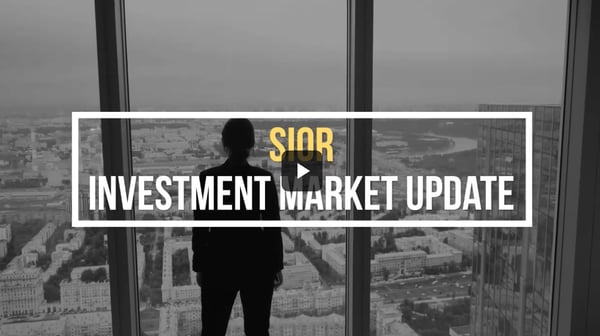SIORs Provide Investment Market Updates
The Office Sector
The office market is still healthy.
According to Brad Kitchen, SIOR, president of Alterra Real Estate Advisors in Columbus, OH, at least. He states that, on average, 95% or more of office rents were collected in April through June. Much of the uncollected rent was either added to the end of the lease or will be paid back now with receipt of the PPP loans.
Remote work productivity assessments are ongoing. Working from home remains popular, while many companies are beginning office reentry on flexible schedules. It may take six to 24 months for resemblances of normalcy; vacancy and subleasing will continue rising in the short-term. While remote work may decrease foot traffic, that may be offset by companies requiring the same or more space to provide social distancing.
What is the impacted value of office properties? Kitchen notes that buyers may either discount prices or scrutinize the tenant credit and occupancy plans more carefully. Many appraisers are only increasing the cap rate on office properties by 25 to 50 basis points or increasing vacancy allowance, but typically not both.
Pent up demand and interest in investments should stabilize prices. Corporations are also raising capital and they will want to monetize their real estate with sale leasebacks or through the selling or leasing of excess properties.
The Industrial Sector
Overall, deals are certainly harder to close, but the industrial market has turned back on, and portfolios are still moving forward, explains Mark Kolsrud, SIOR, senior vice president of Colliers International in Minneapolis, MN. The industrial market remains strong.
Kolsrud states that some investors are holding until they can travel and view properties in-person. He also emphasizes that there are so many winners in industrial. Ecommerce has gone from 13-18%, which has positively impacted industrial needs.
Cap rates haven’t changed much, but we should expect more collapsing of cap rates. Acquiring credit will be the largest hurdle. Leasing has been reduced as tenants try to determine their footprints.
Financing
Financing is becoming more available again, especially since June 1st, notes Gabriel Silverstein, SIOR, SVN Institutional Capital Markets Chair & Managing Director in Austin, TX.
CMBS loans are now being quoted again. Life insurance companies are returning to lending but remain cautious and selective. Lenders are becoming more receptive for multifamily and industrial, but office lending is slowly bouncing back as well.
Interest-only lending with modest leverage points and low interest rates are helping buyers make deals pencil out despite sellers not yet discounting many deals. Slower to thaw are bridge-lender value add loans. Higher interest rates and stalled quotes are impacting deals that need those loans.
Auctions
Ian Grusd, SIOR, senior director at Ten-X, shared that there was, and continues to be, a surprising surge in interest for Ten-X LIVE BID Events in the period of mid-March through the end of May.
Ten-X sold 120 properties for a total GMV of $283M with 75% of winning bidders transacting for the first time on the Platform. In addition, almost 50% of buyers were from out of state of the property they purchased. The average deal size was $2.3 million and there was a 60% trade rate.
Many owners are still committed to moving forward, Grusd shares. The strongest selling asset class by trade rate was industrial at 72%. Value-add retail and suburban office comprised the highest percentage of overall properties. Year over year, Ten-X saw an increase in the average amount of registered bidders per deal with comparable figures on unique views and signed NDA’s. Finally, Institutional Trade rate was over 90% which was a strong indication of sellers meeting market pricing in light of the uncertainty for Q3/Q4.
Private Capital
Private capital investors are still active but are going through a phase of pricing discovery to determine what properties are truly worth right now, stated Landon Williams, SIOR, senior vice president of Cushman & Wakefield Commercial Advisors LLC in Memphis, TN. Sellers are also reluctant to confirm actual post-COVID NOI and buyers are making risk adjustments for that income stream. The capital is there, but greater creativity is needed to make the deals work.
Much of the activity has slowed because of the debt markets, but there is a practical consequence to the inability to travel and see a property prior to purchase. As travel increases, deal activity should increase as well. Even still, larger industrial portfolios have still transacted, just at a slower pace.
Despite current economic conditions, overall, hope remains, and investments remain steady.
This blog post was jointly developed by content provided from each of these SIOR Members. All facts and opinions are solely their own. Click on their names to contact each one individually.
The Market Update was also part of a larger Investment DealShare webinar. View the entire webinar here.







